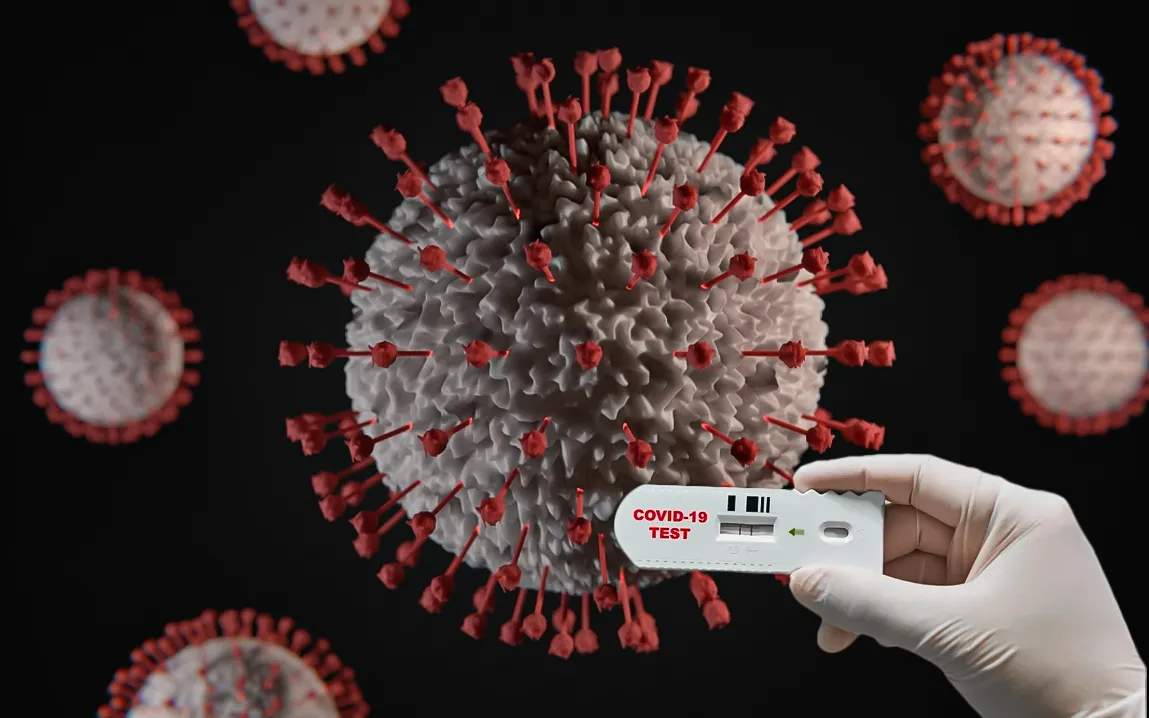The newest strain of COVID-19, NB.1.8.1, a variant of Omicron, is spreading throughout Asia and in some regions of the U.S. Doctors exchange information regarding symptoms, contagiousness, and new booster protocols.
While worldwide health officials keep watch on the continually changing COVID-19 virus, a newer variant has emerged called NB.1.8.1, filling experts and people in general with anxiety. First detected in Asia and now detected in various parts of the United States, this Omicron sub-lineage is making headlines due to its rapid spread and apparent impact on individuals’ health.
What is NB.1.8.1?
NB.1.8.1 is a variant of the Omicron lineage, which has been causing most COVID-19 cases globally since late 2021. Unlike previous versions, it has been associated with rising COVID cases in most Asian nations and has now made its way to the United States. It was already reported in California, Washington, Virginia, and New York, as well as Ohio, Rhode Island, and Hawaii.
The international health authorities have placed NB.1.8.1 in the “Variant Under Monitoring” (VUM) category due to its increasing occurrence. Although it has not yet been considered a “variant of concern,” its trend towards growth has brought it under close observation.
What Are the Symptoms?
Symptoms linked with NB.1.8.1 seem to be mostly similar to prior Omicron sub variants. They include:
- Cough
- Sore throat
- Fever
- Fatigue
- Muscle ache
- Congestion
- Headache
- Nausea
- Loss of appetite
- Digestive problems
Although these symptoms are similar to previous variants, some specialists believe that NB.1.8.1 could have more insidious or mild symptoms in certain patients, particularly the vaccinated.
How Bad is It?
Up to now, the information does not indicate that NB.1.8.1 makes people sicker than previous variants. Scientists are, however, seeing a potentially increased transmission rate.
According to Dr. Subhash Verma, professor of microbiology and immunology at the University of Nevada, “Data indicates that NB.1.8.1 does not lead to more severe illness compared to previous variants, although it appears to have a growth advantage, suggesting it may spread more easily.”
Dr. Amy Edwards, an assistant professor of pediatrics at Case Western Reserve University, said that in lab tests, NB.1.8.1 adheres more strongly to human cells — potentially making it more transmissible — but that there is not much strong evidence that it produces more lethal infections.
What About the Booster Shot?
The arrival of NB.1.8.1 occurs as the FDA is reissuing guidance on COVID-19 booster shots. New proposals indicate that only high-risk groups — the elderly and those with comorbid conditions such as diabetes or pregnancy — will be targeted for refreshed booster shots this fall.
This change would exclude many Americans who were once eligible for boosters from eligibility for the new shots. Verma worried that this policy would leave much of the population with lower protection, even as NB.1.8.1 becomes more common.
Edwards also observed that it’s unclear how precisely the new boosters will protect against specific variants and when clinical trials will be able to provide useful information.
What Should You Do?
As NB.1.8.1 picks up steam, health authorities continue to advise simple but effective precautions:
- Get vaccinated with COVID-19 vaccines and the approved booster doses
- Mask up in crowded or poorly ventilated areas
- Practice good hand hygiene
- Be aware of symptoms and test if sick
- Adhere to public health measures in your community
Though NB.1.8.1 is not yet a cause for alarm, being aware and taking action is crucial. As always, the battle against COVID-19 still relies on public consciousness, quick action, and scientific advice.



